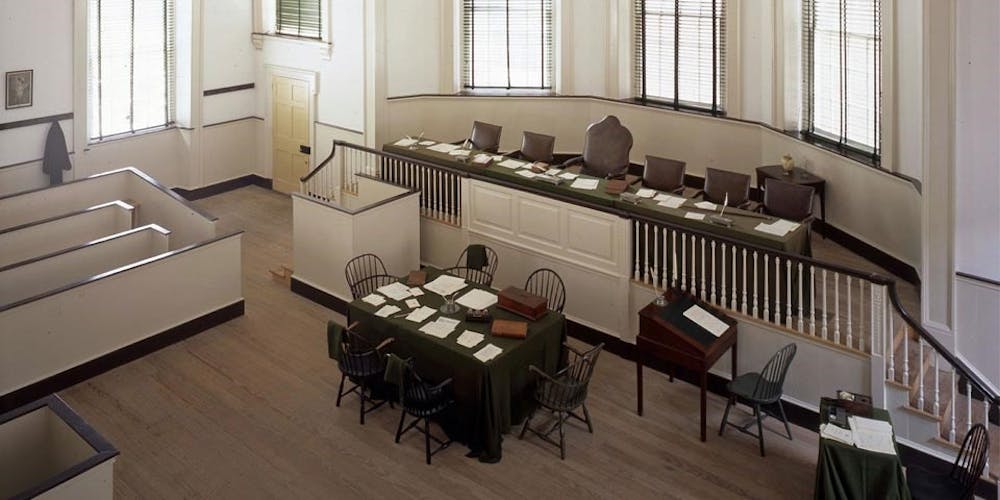The Pennsylvania Supreme Court ruled the state’s legislative district map unconstitutional on Jan. 22, raising questions on gerrymandering and the methods used by states to draw district lines.
While announcing its decision, the Supreme Court said the current map “clearly, plainly and palpably” violates the state’s constitution, with critics claiming Pennsylvania’s district map is one of the most manipulated in the country, according to The New York Times.
If the Supreme Court’s ruling stands, Pennsylvania will follow in the footsteps of Wisconsin and North Carolina, both of which had previously been struck down by lower courts for unconstitutional district maps.
The term “gerrymandering” combines the last name of former Massachusetts Gov. Edward Gerry, who redistricted the state to benefit his party in the 1800s, and the word “salamander.”
At first glance, some may not realize the constitutional repercussions of gerrymandering. Last year, the Associated Press (AP) reported that Americans who voted for their state representatives in 2016 had little say in the matter — in 42 percent of all elections, candidates were predetermined due to unconstitutional redistricting.
By manipulating the sizes and shapes of districts, legislators are giving their party an advantage during election years and practically ensuring that the candidates of their choice will end up in office.
Though the rate of uncontested elections dipped from 2014-2016, the percentage of Americans who live in legislative districts without choices is rising, according to AP.
The organization also reported that of the 4,700 House seats up for grabs in 2016, 988 seats were predetermined due to gerrymandering.
When legislators manipulate district maps, they are taking away the American people’s right to a fair and equal democracy. For instance, in some cases, the people that live in heavily manipulated districts are unable to move, and are forced to live without much choice of who represents them at the state level.
We believe the best way to combat gerrymandering is to establish a third-party agency that can create rules and guidelines to be used when district lines are redrawn after each census. During this time, district lines should be evaluated by population, not party membership.
While we know that this would improve the system, we acknowledge that additional checks and balances cannot guarantee an honest system, but can greatly reduce the threat of corruption in the legislative branch.
As gerrymandering cases continue to make their way to court, we urge legislators to remember that America was never intended to be a country of intense divisiveness.
By allowing states to divide groups of people by their political status, we are supporting the idea that certain groups of Americans cannot coexist with different political opinions and must, therefore, be separated.
We live in a country that is supposed to be the land of the free, but will never be until corruption like this is removed from its government.


The Slate welcomes thoughtful discussion on all of our stories, but please keep comments civil and on-topic. Read our full guidelines here.